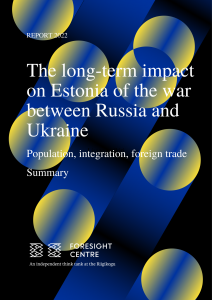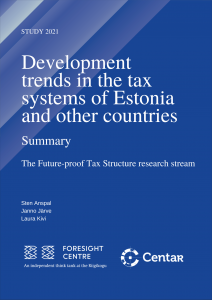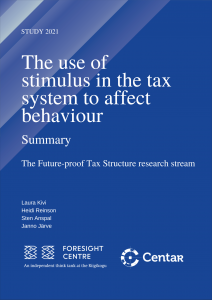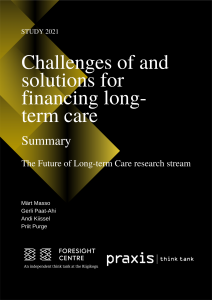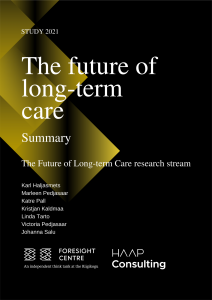On the anniversary of the Republic of Estonia, 24 February 2022, Russia invaded Ukraine. More than 5 million people have fled Ukraine since the war started, and by the middle of June some 43,000 of them had reached Estonia. It is inevitable that even if the war ends quickly, many of the people who have arrived in Estonia from Ukraine will remain here for a long time, and some of them will never return to their homeland. It is not currently possible to know though when the war will end, how many refugees would have reached Estonia by then, and whether they will be able to or will want to return to their homeland.
Reports
Higher education has a value for individuals, the economy, and the whole of society. People are motivated to invest in higher education because they expect greater welfare in the future through higher income and the better quality of life that that allows, and also intellectual enrichment and a more varied life.
The current report focuses on the future of higher education in Estonia. The importance of human capital in the knowledge economy has promoted the debates about the role, size, and financing of higher education to the core of academic and political debates.
In this paper, we summarize the main developments of European countries’ tax systems, looking at both longer term trends as well as more significant reforms in recent years. We look at labour taxes (including the personal income tax and social security contributions), corporate income tax, consumption taxes, and property taxes.
The focus of the study is on how the tax system is used to achieve innovation, better health behaviour and a cleaner environment. In particular, we map interventions that seek to influence people on innovation, health and environmental matters through excise duties and taxes, and which (ideally) incorporate behavioural insights that help to achieve better results in terms of innovation, health and environmental goals. In addition, we examine what behavioural insights are built into the broader tax system (with the goal of improving tax compliance and collecting more tax revenue).
Long-term care is for people who require assistance for coping with and participating in their daily lives arising from a decrease in their physical and mental capacity due to ageing or health reasons. Long-term care encompasses various healthcare and social services that prevent the deterioration of the health and abilities of people and assist them in their daily activities and wellbeing.
This report assesses the current state of long-term care in the EU and Estonia constructs future scenarios of the development of Estonia’s long-term care sector. The scenarios are based on information gathered in the literature review, case studies of two EU countries, analysis of interviews and focus groups, and a nation-wide survey.

 An independent think tank at the Riigikogu
An independent think tank at the Riigikogu 